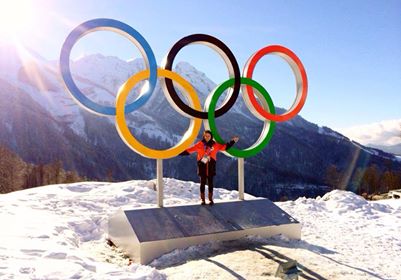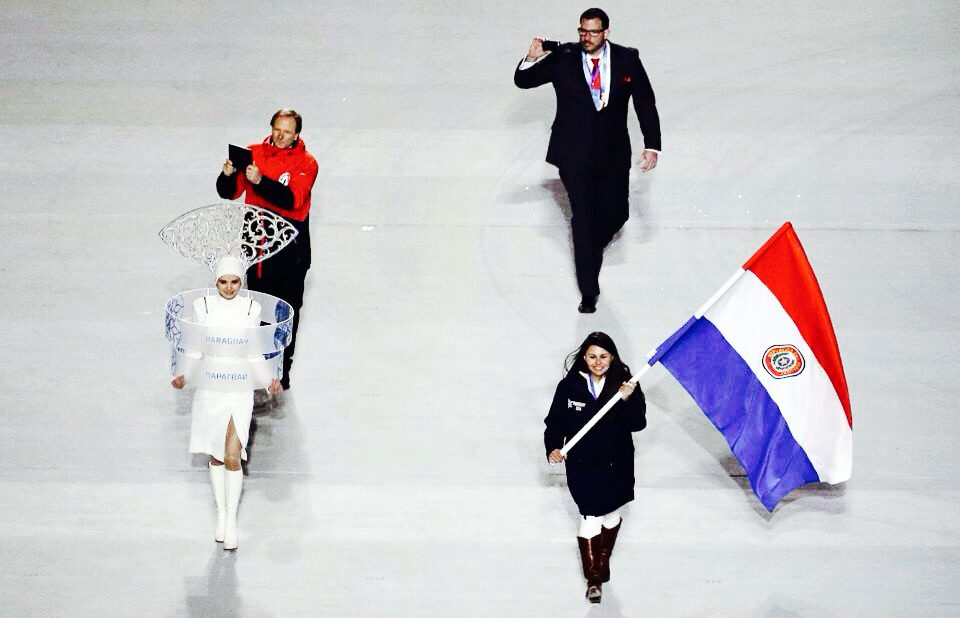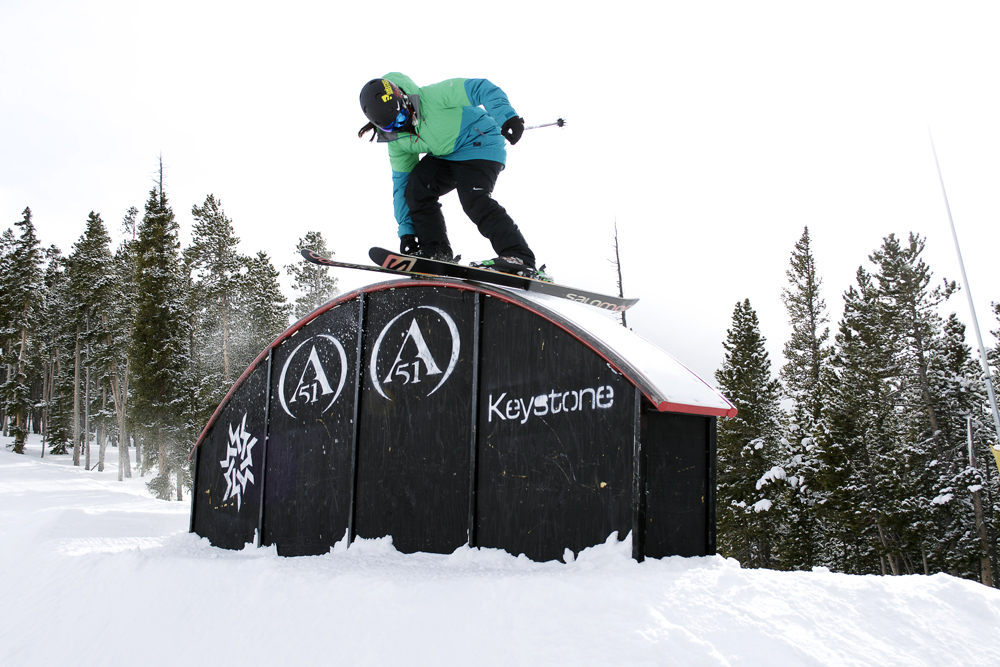Like many who choose the University of Colorado, junior psychology major Julia Marino gravitated toward the wintery slopes of the Rocky Mountains. But what sets Marino apart from the countless other self-proclaimed ‘ski bums’ of CU is a trip to the 2014 Winter Olympics in Sochi, Russia.
Although the games officially ended Sunday night, Julia Marino’s representation of Paraguay as the country’s first Winter Olympian is a memory she won’t soon forget.
“It was an incredible experience,” Marino said. “To be the first [Olympian] and to be the flag bearer was absolutely crazy. There was absolutely nothing I could have done to prepare for that moment.”
Paraguay’s Olympic debut was not the only first Marino has been a part of. Her competition is slopestyle skiing, a brand-new event on the 2014 Olympic lineup. The sport involves a downhill course with jump and rail features; athletes are expected to perform both big air and technical tricks.
“When I was twelve, slopestyle skiing was becoming a new discipline,” Marino said. “I was just so intrigued by the creativity of it and that no course is ever the same. It allows for the entire field to succeed because you really don’t see the same three girls on the podium.”
Training for slopestyle consists of both on-snow and land training, including weight lifting and physical therapy. Because competitors are judged on the difficulty of their tricks, creative use of the course and overall execution of jumps, trampoline training is utilized to teach skiers new maneuvers.
A regular day of on-snow training follows the same nine-to-five format of any other line of work. According to Marino, she is warmed up and on the mountain by 10 a.m., finished skiing for the day by 2:30 p.m. at the latest, and begins land workouts at 3 p.m.
“Training my legs and my upper body and my core is incredibly important to holding a landing,” Marino said.
Being invited to all five Olympic qualifiers last March and placing second in last year’s World Cup in Spain, Julia had a shot to make the U.S. Olympic Ski Team. When the prospect of traveling to Russia truly materialized, her mind wandered back to Paraguay.

Julia Marino poses for a photo in front of the Olympic rings in Sochi. (Photo Courtesy Julia Marino)
“When my coaches and I would talk about what the Olympics meant to me, what I really thought about was that it’s about where you’re from,” she said. “I began to research Paraguay at a Winter Olympics, and nothing was coming up. I was just in awe of this idea that I could be the first Olympian for them and really show the country a different side of winter sports.”
It took seven months of filing paperwork to get Paraguay accepted into the FIS, or International Ski Federation. Marino also had to take the necessary steps to represent Paraguay as an American citizen. Official approval on both counts did not manifest until Nov. of 2013.
“There’s all these little details that you really never think about,” she said of the constant flow of paperwork and phone calls. “On top of taking 15 credits last summer, it was like another class in itself. Once I heard the decision, I immediately went to Paraguay for ten days to plan this whole Olympic year.”
Marino failed to progress past the qualifying rounds in Sochi after placing 17th with a score of 36.40. Only the top 12 scorers make the final medal round.
“For the first couple days, I was so angry,” she said. “I couldn’t talk about it. Looking back on it, it just gives me more motivation to keep training and get ready for the next one.”
Despite the disappointment, Julia Marino takes pride in belonging to the Olympic community.
“You can just see this genuine connection of respect that everybody has earned a spot here, and being an Olympian is a huge accomplishment in itself.”

Julia Marino carries the Paraguayan flag during the opening ceremonies in Sochi, Russia. (Photo Courtesy of Julia Marino)
Contact Assistant Sports Editor Jordyn Siemens at jordyn.siemens@colorado.edu.

